Diagnosing Sick Societies
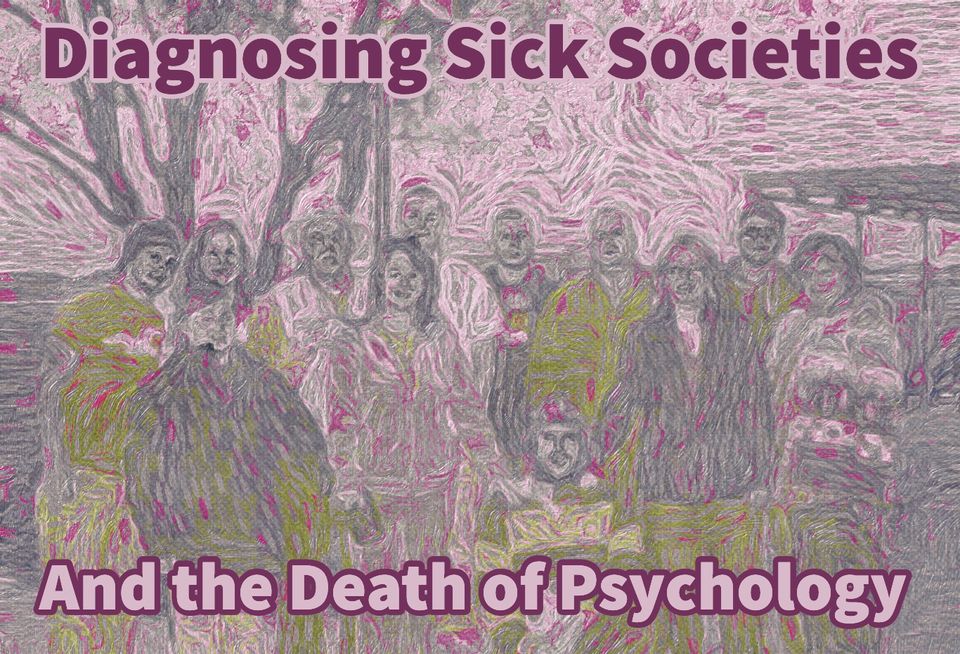
And The Death of Psychology
No position is more arrogant than, "you are living incorrectly and I know the proper way". This arrogance is why individuals despise the most proselytizing of religions and ideologies. People do not appreciate being told that they should alter the way they live.
Bear with me readers, because that is precisely my position. The topic of this article transcends politics, because the questions posed can lead to a better way to live.
This is a psychological and philosophical diagnosis of a sick society.
A Basic Question that Psychologists Fail to Ask
Confusion is unhealthy for social animals, particularly if those animals are confused about the social hierarchy or matters related to their tribe.
Social animals, such as humans, need to know (1) who is in their tribe and (2) what their role is in that tribe. Not knowing either will result in conflict or self-isolation. We constantly search for new members of our tribe that satisfy certain requirements (shared values, for instance). If we are among our tribe, but a stranger is present, we cannot be completely relaxed or open. If we do not know what our (or another member's) place is in that tribe, we cannot be completely relaxed or open.
This is because we evolved in settings where we engaged with other humans as friends or foes. If a group (of any species) maintains a territory and resources, any member that uses those resources is either helping the group protect or gather those resources, or is in competition for those resources. This is basic biology that applies to non-social animals as well. There are limited resources and individuals either (1) work together for those resources, (2) are in direct competition for those resources, or (3) are too far away from each other to have overlapping resources.
But we live in a bizarre setting. We are possibly encountering a novel problem without being aware of it, because we now live in close proximity to other people, but are neither friend nor foe.
We are inconsequential to one another.
We don't know what this does to our psyche or if confusion occurs when we permanently exist in close proximity – but inconsequentially – to other humans. We routinely encounter humans that do not aid us or direcly compete against us for our resources.
If your neighbor died today, there would be no material consequences for you since you don't rely on each other in any way. Your neighbor is inconsequential to you. Likewise, if you died tomorrow, your death would have no material consequences on your neighbor. You are inconsequential to him/her. This is in spite of living close enough that in the natural settings (that our brains evolved in) we would have to be friend or foe.
It is unlikely that we could have possibly evolved to cope with detachment from resources via a currency exchange proxy; and having other members of our species in our traditional space while not serving any purpose. We have no relationship with our food and even many of our close loved ones are not directly involved in the process of acquiring resources with us.
What are the consequences of having resource-free relationships with people and having neutral strangers in our traditional space?
We don't have these answers because psychology is no longer a true science but rather has degraded to cheap "mental health" headlines. The questions posed in this section were born from basic biology and evolution, yet somehow escaped the scrutiny of one of the largest fields of science that currently exists. This is not at all surprising given that psychologists don't even have to be trained in calculus or differential equations – two critical pillars of the scientific method. The two variables of (a) our relationship to our resources and (b) not having that relationship could have been isolated and tested against one another. The two variables of (a) neutral relationships vs (b) non-neutral relationships could have been compared to each other as functions of rates of depression.
We'll return to the questions presented in this section, but before arriving at my final conclusion, we need to examine a special group of people as well as one of the greatest failures of modern psychology.
The Combat Veteran Dilemma
What occurs to soldiers after returning home is a mystery, though many modern psychologists believe this is a settled matter. It is not. First, let us examine what we know.
Combat veterans are an at-risk group, meaning these people have higher rates of suicide, substance abuse, and depression. Modern psychology believes that this at-risk state results from traumatic environments. It should be no surprise that psychologists are wrong yet again about their own field. We have measured1, up to 50+ times in the past 50 years, the rates of chronic PTSD symtpoms ranging from riot victims and vehicular crashes, to 9/11 survivors and Gulf War veterans. The proportion of people who sufffer from chronic trauma-related symptoms is anwhere from 4-14%. The rest (86-96%) of people who encounter "traumatic" events are resilient. Think about these numbers carefully, because the most bizarre fact of all is that most trauma treatments will make half of the resilient regress.
Trauma treatments help 4-14% of people (chronic cases), harm 43-48%, and have no effect on 43-48%.[1] That is, if proper filters are not put in place prior to treating people.
So what is happening to combat veterans if they are at-risk but not traumatized?
The original theory that describes the combat veteran dilemna is this: life was good, then bad, then good again. In other words, these people were in a "good" state while at home prior to going off to war. Once they were in war, they were in a "bad" state before finally returning to the "good" state. This is the overarching theory that describes why combat veterans are an at-risk group, and the more you think about it, the less it makes sense. If these people were returning to a "good" state after a "bad" state that traumatized them, should they not be recovering?
One would think that they would recover in a "good" environment, but combat veterans remain an at-risk group (at least up to 3 decades after returning home, and possibly longer) in comparison to other groups. This is particularly suspicious after reviewing the psychology of trauma and resilience, which shows that the vast majority of people are resilient to PTSD and trauma-related illnesses.
Let's flip the theory upside-down. What if the truth is that these people are initially in a "bad" state, then "good" (yes, let's pretend that war is relatively good for now), then in a "bad" state again. Imagine not knowing that you are in a bad environment until you finally leave it only to have to return to this bad environment again. You would long for something better because you experienced something better while most people would be comparitively content (because they have yet to experience something better). Your group may even be measured as an at-risk group and confused as trauma-sick. This would explain why such a large portion of these men and women are at-risk but not traumatized.
The truth is that combat veterans miss something about the war setting. I am not claiming that they miss gore, death, and violence. I am suggesting that there is a community aspect that accompanies war, and that they don't get this same aspect when they return to their large-scale society. When they return, they feel like they are missing something. Yes, some are traumatized, but many more are not traumatized but still at-risk of suicide, depression, and substance abuse. These men and women feel like they are missing something but can't quite name it.
Tribalism
I received testimony from a group of people who were in a brief survival situation. While they were terrified in the moment, they recall the memory fondly. I believe what is occurring here is similar to what happens to combat veterans. Both groups were in a setting that is more tribal than their home setting. This is not to say that war or group survival is tribal – just that war and group survival is more tribal than living in a large-scale society.
In war, soldiers rely on one another. They have roles. As a result, soldiers have a purpose that can't be lost (such as the existential crises that can occur after one graduates, retires, the kids move out, etc) – that is, until they return home. Furthermore, soldiers have to protect their resources. Your fellow soldier is certainly not inconsequential to you, and you are not inconsequential to him. You need each other, giving the both of you a sense of purpose and meaning. The unnatural setting where strangers are close but inconsequential doesn't exist – another human is either a fellow soldier, an enemy, or a potential enemy. This is clearly the type of grouping that we naturally evolved for; and psychologists and philosophers have always known that having a purpose in life is crucial for a person to remain healthy.
It follows that tribalism, or any system where a group of people rely on each other for resources and protection, is a healthy setting for humanity. It gives purpose and meaning to one's life while also giving a meaningful sense of community.
What We Know
We know that combat vets were never traumatized aside from a small percentage (we know this from dozens of valid empirical studies across a range of traumatic experiences). We know that combat vets are at-risk. We know that the good-then-bad-then-good theory does not describe the combat vet dilemna.
What We Do Not Know
We do not know what the potential health issues are for people that live in close proximity to other people that are ultimately inconsequential to one another – neither aiding/competing with each other in acquiring resources or in protecting/warring with each other. We do not know why combat vets are at-risk while not being traumatized. We do not know why combat veterans and other groups will fondly recall war or group survival situations (nor do they in most cases).
The Theory
We need a theory that takes what we know and explains what we don't know. If these people miss a tribal setting or a setting that is more tribal than the one they are returning to, then this theory satisfies our criteria. As opposed to the (rather silly) theory of good-bad-then-good, the bad-good-then-bad theory that I am posing explains these phenomena.
Now to Test the Theory
I don't have access to a team or polling capabilities yet, but it is clear that a non-psychologist is going to have to collect data while isolating variables and then analize that data. This will likely have to be done several times using various methods of collection and analysis. Psychology is dead and of no use to society anymore. This is no longer a field of science but cheap, feel-good psychiatry quotes for the masses, particularly the masses that constantly need their feelings of inferiority replaced with temporary solutions.
The questions posed in this article are too important and fundamental to leave in the hands of politicized academics that harm healthy people despite warnings from a half-century of legitimate psychologists. If only we could bring back the great psychologists of old when they were still trained in calculus and error analysis.
Could it be that we miss something that we no longer have?
Please consider supporting my journal. Also, let me know on my social media pages if there is a topic that needs investigating.
[1] Kelly C Offield. "A Tale of Suppressed Science: The Psychology of Trauma and Resilience". The ARKA Journal. https://advocate-for-rights-and-knowledge-of-americans-arka.ghost.io/the-psychology-of-trauma-and-resilience/
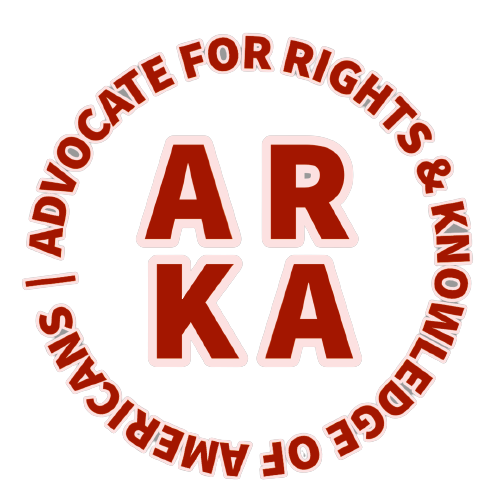
![A Religion Called "Psychology" & the Bully Myth [Part II]](/content/images/size/w750/2022/10/bully2.PNG)
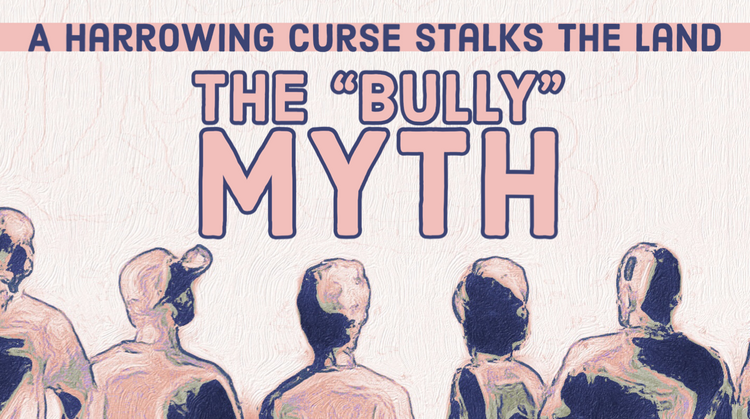
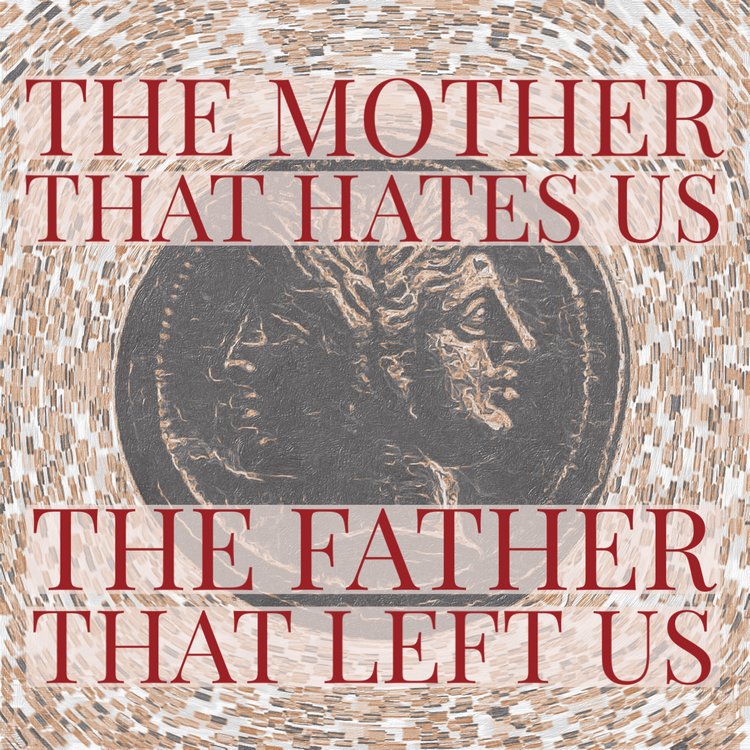

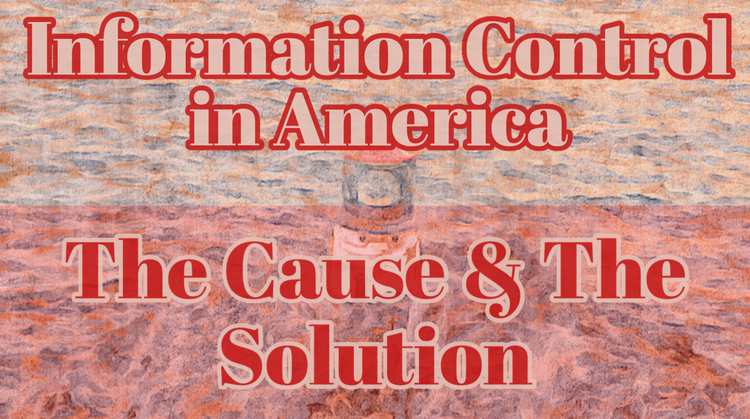
Member discussion